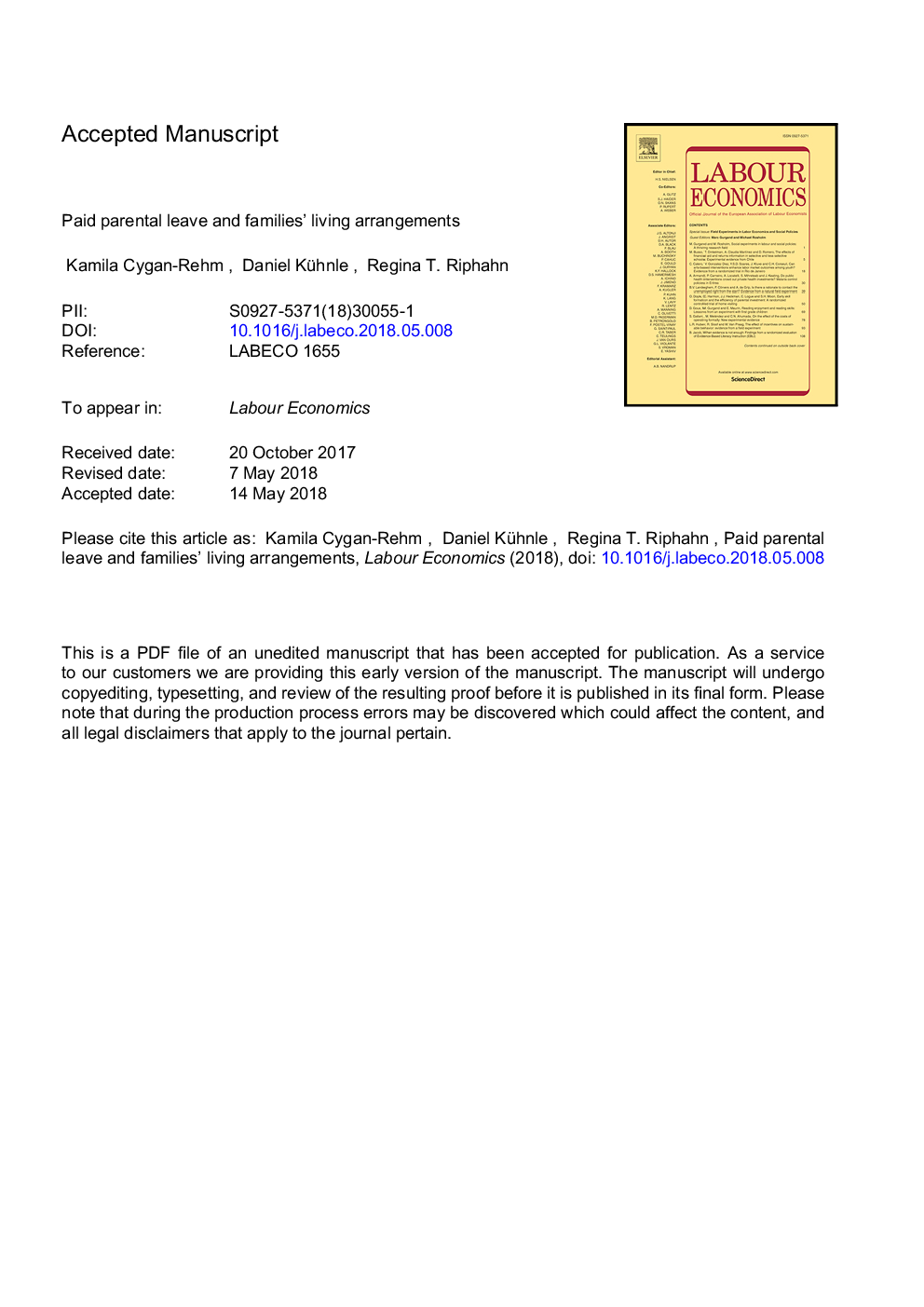| Article ID | Journal | Published Year | Pages | File Type |
|---|---|---|---|---|
| 8948034 | Labour Economics | 2018 | 50 Pages |
Abstract
We examine how a paid parental leave reform causally affected families' living arrangements. The German reform we examine replaced a means-tested benefit with a universal transfer paid out for a shorter period. Combining a regression discontinuity with a difference-in-differences design, we find that the reform increased the probability that a newborn lives with non-married cohabiting parents. This effect results from a reduced risk of single parenthood among women who gained from the reform. We reject the economic independence hypothesis and argue that the reform effects for those who benefited from the reform are consistent with hypotheses related to the improved financial situation of new mothers after the reform and increased paternal involvement in childcare.
Keywords
Related Topics
Social Sciences and Humanities
Economics, Econometrics and Finance
Economics and Econometrics
Authors
Kamila Cygan-Rehm, Daniel Kuehnle, Regina T. Riphahn,
